5 Vegan Pork Benefits You Need to Know for a Healthier Lifestyle
Vegan pork, a popular plant-based option, mimics real pork’s taste and texture using ingredients like soy and heme. It comes in various forms, offers health benefits, and is a cruelty-free, sustainable choice.

Veganism has become popular due to its health and environmental benefits. Vegan pork, known for its flavor and texture similar to real pork, is a notable plant-based option. We’ll explore 5 key facts about this intriguing meat substitute in this blog post.
Disclosure: As an Amazon Associate, this site earns from qualifying purchases. Thank you!
1. Ingredients
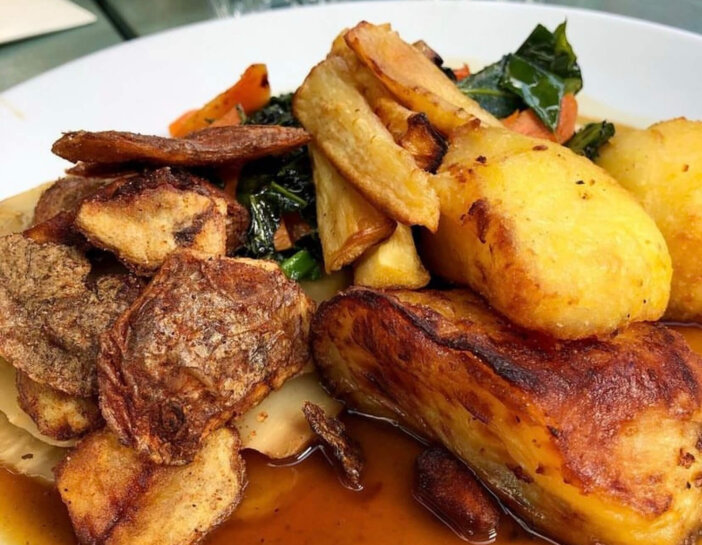
Vegan pork is typically made from a variety of plant-based ingredients. Soy and potatoes are often used for protein, while heme, a molecule found in all living organisms, is incorporated to give the meat its distinctive taste. Other ingredients include coconut and sunflower oils, which help it sizzle on the griddle, and culinary binders like methylcellulose and food starch, which hold it together.
2. Variety

Just like traditional pork, vegan pork comes in many forms, including bacon, ham, sausages, and even pulled pork. This allows you to enjoy your favorite pork dishes without consuming any animal products.
3. Texture and Taste
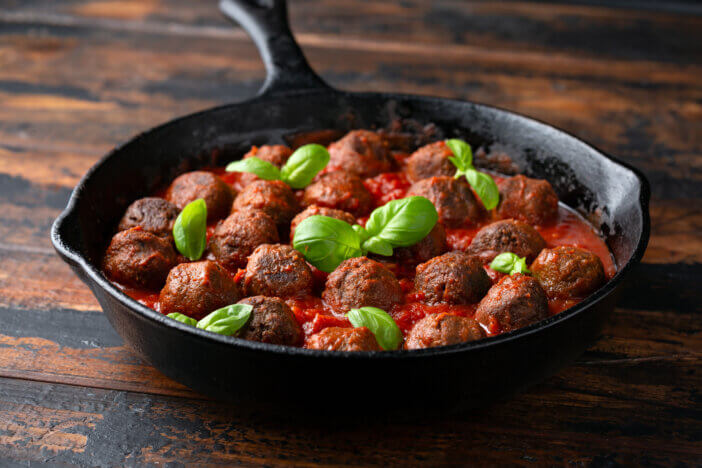
Vegan pork manufacturers strive to mimic the texture and taste of real pork as closely as possible. For instance, jackfruit, due to its slightly stringy texture, is used to replicate slow-cooked or braised meat products.
4. Nutrition
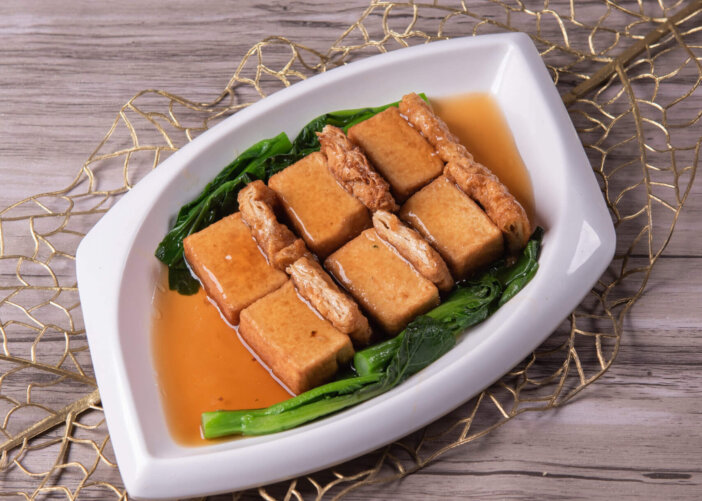
Vegan pork is a sustainable and nutritious alternative to meat, packed with plant-based proteins like soy, peas, and beans, and mimicking the taste and texture of traditional pork with less fat and no cholesterol. It’s environmentally friendly, requiring fewer resources and producing lower emissions than livestock, and it’s also cruelty-free. This heart-healthy, ethical choice is becoming popular among vegans, meat-reducers, and health-conscious eaters seeking diverse protein sources.
5. Cruelty-Free
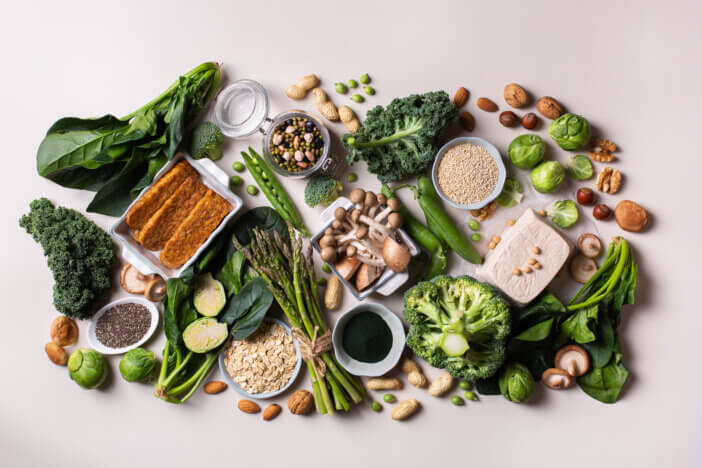
As the name suggests, vegan pork is made entirely from plant-based ingredients, which means no animals are harmed in its production. This makes it a favorite choice among those following a cruelty-free lifestyle.
Vegan Pork Recipes
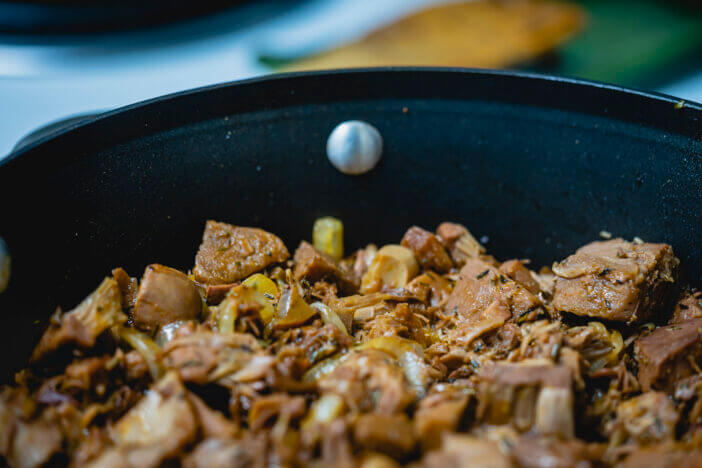
There’s a vast array of recipes available that use vegan pork. From classic dishes like pulled pork and barbecue ribs to international cuisines such as Chinese-style spare ribs, the possibilities are endless. All you need is the right ingredients and a bit of creativity.
Achieve the smoky taste of slow-cooked ribs using beans, mushrooms, tofu, and vegetables. Jackfruit, mushrooms, and seitan provide a meaty texture for vegan pulled pork. There are also vegan versions of chorizo, bacon, carnitas, and pork katsu. Sweet-tasting vegan options include gyudon and roast pork belly, made with rice flour and tofu to replicate traditional flavors.
Different Types of Vegan Pork (Soy-based, Seitan, Tofu, Jackfruit)
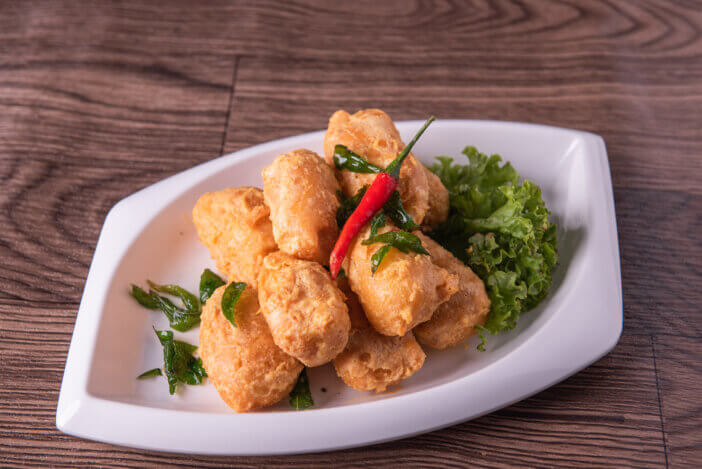
Vegan pork can be made from various plant-based sources each offering unique textures and flavors. Here are a few popular options:
- Soy-based: Soy is a common ingredient in many vegan meats due to its high protein content. It can be transformed into a variety of textures, making it highly versatile.
- Seitan: Made from gluten, the main protein in wheat, seitan has a chewy texture that closely resembles that of meat when cooked.
- Tofu: Tofu is made from soy milk and has a soft, cheese-like consistency. While it doesn’t have much flavor, tofu absorbs the flavors of the ingredients it’s cooked with, making it an excellent choice for vegan pork recipes.
- Jackfruit: Jackfruit is a tropical fruit that has a stringy texture similar to pulled pork when cooked. It’s often used in vegan versions of dishes like pulled pork sandwiches and tacos. Note that jackfruit is not a protein replacement but adds fiber and nutrients.
Environmental Benefits of Vegan Pork
Vegan pork is not only good for your health and animal welfare; it’s also beneficial for the environment. Animal agriculture, including pig farming, contributes significantly to greenhouse gas emissions, deforestation, and water pollution. By choosing plant-based alternatives like vegan pork, you can help reduce the environmental impact of your diet.
Moreover, producing vegan pork requires less land and water compared to traditional pork. This makes it a more sustainable choice in terms of resource usage.
As NutritionFacts.org explains in the video –
NutritionFacts.org
- Transitioning to more plant-based diets is crucial to address health and environmental issues, yet global meat consumption continues to rise.
- Lowering meat consumption is essential to meet future food demand sustainably, but the main drivers of meat demand are hard to influence.
- Information and ethics alone rarely change consumer behavior; increased availability of tasty plant-based options is key.
- Plant-based meats reduce environmental impacts by about 90% compared to animal meats across metrics like emissions and land use.
- Unprocessed plants have even lower impacts than processed options, but people won’t eat them; taste is crucial for regular consumption.
- In blind taste tests, subjects actually rate food thought to be vegan higher, increasing taste perception.
- Major meat companies now blend plant proteins into their products to reduce environmental footprints through stealth sustainability.
- Impossible Foods tackled taste, texture, and nutrition to appeal to meat lovers rather than just vegetarians.
- Beyond Meat also targeted taste to develop plant-based options described as “juicy, meaty and delicious.”
- New blended and hybrid animal-plant protein products represent a promising market direction.
Health Benefits of Vegan Pork
Vegan pork offers several health benefits. Firstly, it’s typically lower in saturated fat and cholesterol than animal-based pork, which can be beneficial for heart health. It’s also high in protein and can be a good source of fiber, especially when made from ingredients like beans or lentils.
Furthermore, as vegan pork doesn’t contain any animal products, it’s free from antibiotics and hormones often used in animal agriculture, which some people prefer to avoid.
Ethical Considerations of Choosing Vegan Pork
Choosing vegan pork is not only a personal health decision but also an ethical one. The production of traditional pork involves raising and slaughtering pigs, which many people object to on ethical grounds.
By opting for vegan pork, you’re choosing a product that doesn’t involve animal suffering. This can be an important part of living in line with values such as compassion, respect for life, and sustainability.






